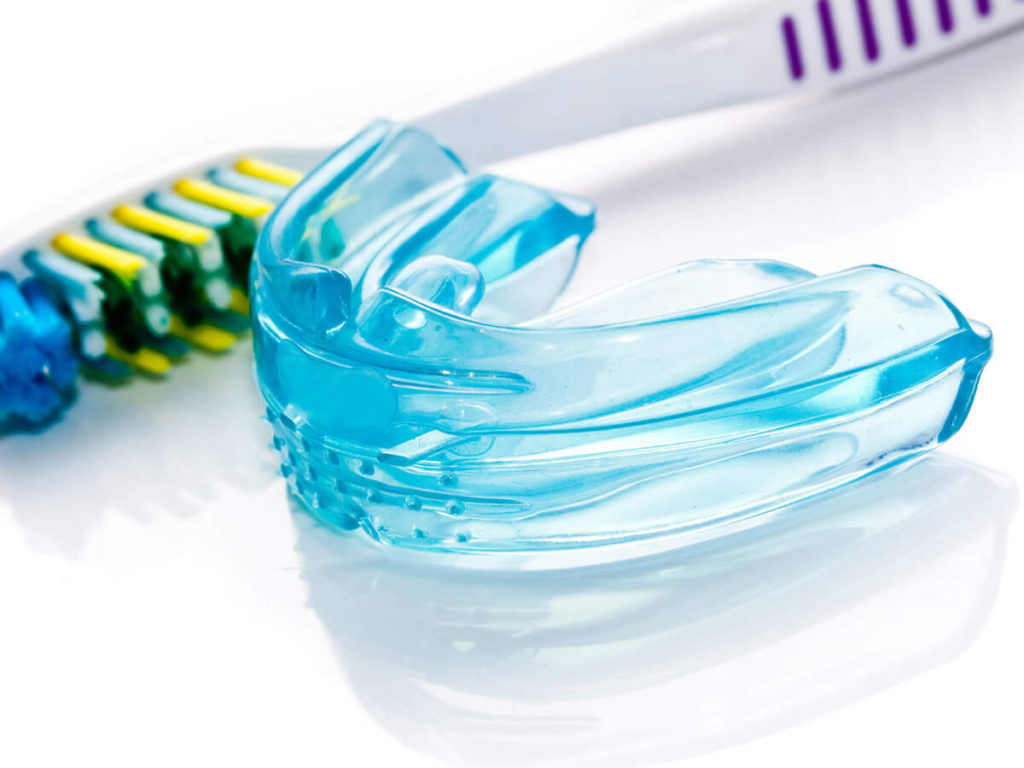Mouth Guards
As an athlete, you need the best gear possible. We offer top-quality athletic mouth guards to protect your teeth whenever you practice or compete.
Mouth Guards and Night Guards
A mouth guard should be considered an essential piece of equipment for every athlete who participates in contact sports and activities—adults and children both. A mouth guard cushions the blow when you are hit and can prevent serious injuries that may result in a lifetime of oral health problems. Our mouth guards are custom made from a lightweight material that is both comfortable and effective and can be easily inserted and removed when needed. They do not interfere with your regular breathing or speaking.
Night guards are similar to mouth guards but are worn while sleeping to prevent damage from a disorder that causes you to unknowingly clench and grind your teeth while you are asleep. This disorder is called bruxism and leaving it untreated can result in teeth fractures, breakages, headaches, and jaw pain.

-
What are the types of dental mouth guards?
There are three types of mouth guards, which are listed below:
- Stock mouth protectors that come ready to wear. These are inexpensive and can be bought at most sporting goods stores. However, you cannot adjust their fit, they tend to be bulky and sometimes make breathing and talking difficult. Additionally, these types of mouth guards provide minimal protection.
- Boil and bite mouth protectors can also be bought at most sporting goods stores and offer a better fit than stock mouth protectors. This type of mouth guard is placed in hot water to soften and then placed in the mouth to shape around the teeth.
- Custom-fitted mouth guards are designed individually and made in the dental office based on your dentists’ instructions. Your dentists will first make an impression of your teeth and then mold the mouth guard over the model. This type of mouth guard provides the most protection and comfort.
-
What are options for treating TMJ?
TMJ is a disorder that causes pain in your neck and jaw areas, or/and a clicking noise when you open or close your mouth. It can also limit the range of motion in your jaw.
There are several things you can do to help TMJ, including a temporary night guard, avoiding sharp movements with your jaw, icing your jaw to prevent inflammation, modifying your diet to include softer foods that require less chewing, and practicing relaxations and light stretching techniques to reduce tension in your jaw.
-
Why are mouth guards important in sports?
There are several reasons why wearing a mouth guard when playing sports is important. First, mouth guards protect against displacing teeth as they help distribute force over all of your teeth, which prevents one, or two, teeth from bearing the blunt of the blow. They can also protect against injuries to soft tissues and prevent jaw and teeth fractures. And, ultimately, mouth guards may help prevent against concussions as the padding could lessen the force between the upper and lower rows of teeth and lessen the force of the jaw as it pushes on the skull.
Need a Mouth Guard?
If you have any questions about mouth guards or for a consultation—contact us today.

